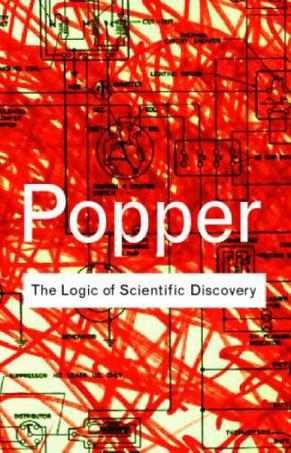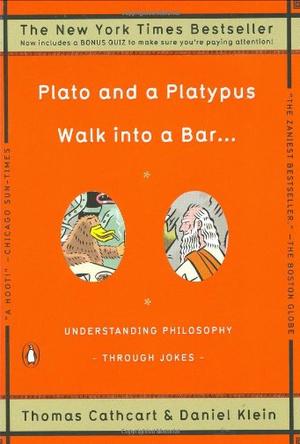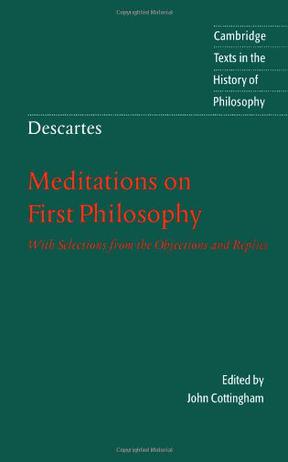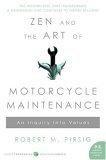-

命名与必然性
命名与必然性是美国当代著名逻辑学家和哲学家,模态逻辑语义学创始人之一的克里普克所著。本书是其代表作。书中所提出的两个新理论曾引起西方分析哲学界持续10多年的大决战。 -

The Logic of Scientific Discovery
When first published in 1959, this book revolutionized contemporary thinking about science and knowledge. It remains the one of the most widely read books about science to come out of the twentieth century. -

Plato and a Platypus Walk into a Bar . . .
This New York Times bestseller is the hilarious philosophy course everyone wishes they'd had in school Outrageously funny, Plato and a Platypus Walk into a Bar . . . has been a breakout bestseller ever since authors(and born vaudevillians)Thomas Cathcart and Daniel Klein did their schtick on NPR's Weekend Edition . Lively, original, and powerfully informative, Plato and a Platypus Walk Into a Bar . . . is a not-so-reverent crash course through the great philosophical thinkers and traditions, from Existentialism ( What do Hegel and Bette Midler have in common? ) to Logic ( Sherlock Holmes never deduced anything ). Philosophy 101 for those who like to take the heavy stuff lightly, this is a joy to read and finally, it all makes sense! -

Meditations on First Philosophy
This authoritative translation by John Cottingham of the Meditations is taken from the much acclaimed three-volume Cambridge edition of the Philosophical Writings of Descartes. It is based on the best available texts and presents Descartes' central metaphysical writings in clear, readable modern English. -

Zen and the Art of Motorcycle Maintenance
The extraordinary story of a man's quest for truth. It will change the way you think and feel about your life. "The cycle you're working on is a cycle called 'yourself.'" "The study of the art of motorcycle maintainence is really a study of the art of rationality itself. Working on a motorcycle, working well, caring, is to become part of a process, to achieve an inner peace of mind. The motorcycle is primarily a mental phenomenon." -- Robert M. Pirsig -

Philosophy of Science
What is science? Is there a real difference between science and myth? Is science objective? Can science explain everything? This Very Short Introduction provides a concise overview of the main themes of contemporary philosophy of science. Beginning with a short history of science to set the scene, Samir Okasha goes on to investigate the nature of scientific reasoning, scientific explanation, revolutions in science, and theories such as realism and anti-realism. He also looks at philosophical issues in particular sciences, including the problem of classification in biology, and the nature of space and time in physics. The final chapter touches on the conflicts between science and religion, and explores whether science is ultimately a good thing.